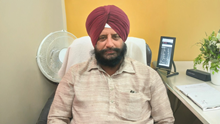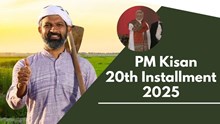
For decades, Indian agriculture has operated within a centralized structure—ministries, universities, and scientists decide policies, design research, and distribute knowledge to farmers. But Prof. Chittaranjan Kole, a globally respected agricultural scientist, challenges this top-down orthodoxy with a radical, yet pragmatic, idea: the Farmers’ Academy—a farmer-led, farmer-governed system that reclaims the rightful leadership of India’s agricultural community.
Prof. Kole’s paper, recently published in the Journal of Agricultural Science (Submitted 23 March, Published 15 June 2025), details this revolutionary concept, developed over the past decade and first implemented during his tenure as Vice-Chancellor of Bidhan Chandra Krishi Viswavidyalaya (BCKV) in February 2015 and deliberated by him on several national and international platforms. Although initially rejected by three Indian journals submitted during December 2024 to March 2025, due to its unconventional structure and "too novel" ideas, the paper has since been hailed nationally and internationally for offering a bold new vision for agricultural transformation.

Why the Change is Urgent
Agriculture today must do more than feed people. It must also provide health, nutrition, energy, and environmental security, a combined framework Kole calls FHNEE security. Yet, current research and extension models are out of sync with the farmers' real needs. Despite having 113 ICAR research institutes, 71 agricultural universities, and 700+ Krishi Vigyan Kendras, the Indian system fails to meaningfully engage farmers in decision-making or problem-solving.
Kole’s critique is sharp and agricultural science often renames traditional practices which are natural, organic, regenerative, sustainable farming without acknowledging that Indian farmers have practiced these for thousands of years. True empowerment lies not in transferring knowledge to farmers, but in first learning from them.
Inside the Farmers’ Academy Model
The Farmers’ Academy is not just a building or a program, it’s a movement. Here’s what makes it different:
-
Democratic Structure: It operates at four levels which are national, state, district, and block with elected farmer bodies making key decisions.
-
Curriculum Control: Farmers decide what research is needed, what training is useful, and even help design agricultural education curricula.
-
Digital Empowerment: With a dedicated website, social media, newsletters, photo galleries, and even plans for radio/TV, farmers gain tools for real-time communication, training, and advocacy.
-
Mentorship and Staffing: Scientists and professors will be hired by the academy, working for the farmers under contracts, not above them in hierarchy.
-
Extension Redefined: Instead of scientists “teaching” farmers, it’s the farmers who guide research priorities. Innovations are tested on their fields, and results are shared farmer-to-farmer.
-
Market Linkages: Farmers decide on pricing, supported by a network of Farmer Producer Organizations (FPOs), banks, and marketing experts linked to the academy.
Proof of Concept at BCKV and Beyond
The idea has already been tested. At BCKV, Kole transformed a traditional training center into the Farmers’ Academy and Convention Centre (FACC). Farmers were given full access to facilities, organized their own meetings, and directly engaged with scientists. A hostel built with ICAR funds was repurposed solely for farmers’ use. This pilot initiative proved that when given the platform, farmers lead with wisdom, clarity, and urgency. The GreenWorld Farmers’ Forum for Education & Decelopment has also launched its platform for such frontier activities as the Indian National Farmers’ Academy under Kole’s mentorship.
Beyond Extension: A New Educational Vision
Kole calls for a radical shift in agricultural education, like medical students doing internships, agriculture students should live in villages and cultivate fields before becoming researchers or professors. This field-based exposure will close the widening gap between theory and practice. Moreover, the Academy could be a training hub for both scientists and extension officers, under farmer supervision to ensure they remain grounded in reality.
Converging FPOs and Farmers' Academy
Farmer Producer Organizations, which currently struggle with market access, credit, and scalability, would benefit from convergence with the Farmers’ Academy. Together, they can build farmer-controlled value chains, increase bargaining power, and facilitate collective problem-solving at scale. As proposed in the paper, these bodies can federate regionally and nationally driving policy through grassroots consensus.
A Call to Transform India’s Agricultural Future
India’s farmers are not passive recipients of aid or knowledge. They are innovators, experimenters, and guardians of traditional ecological wisdom. Prof. Kole’s model repositions them where they belong: at the center of agriculture’s future. The Farmers’ Academy is more than just an idea, it’s a blueprint for reclaiming agency, restoring dignity, and revolutionizing Indian farming.
At a time when global food systems are under immense pressure and trust in top-down models is waning, Prof. Kole’s Farmers’ Academy offers a bold, hopeful, and practical alternative, one that India, and the world, would do well to embrace.

















